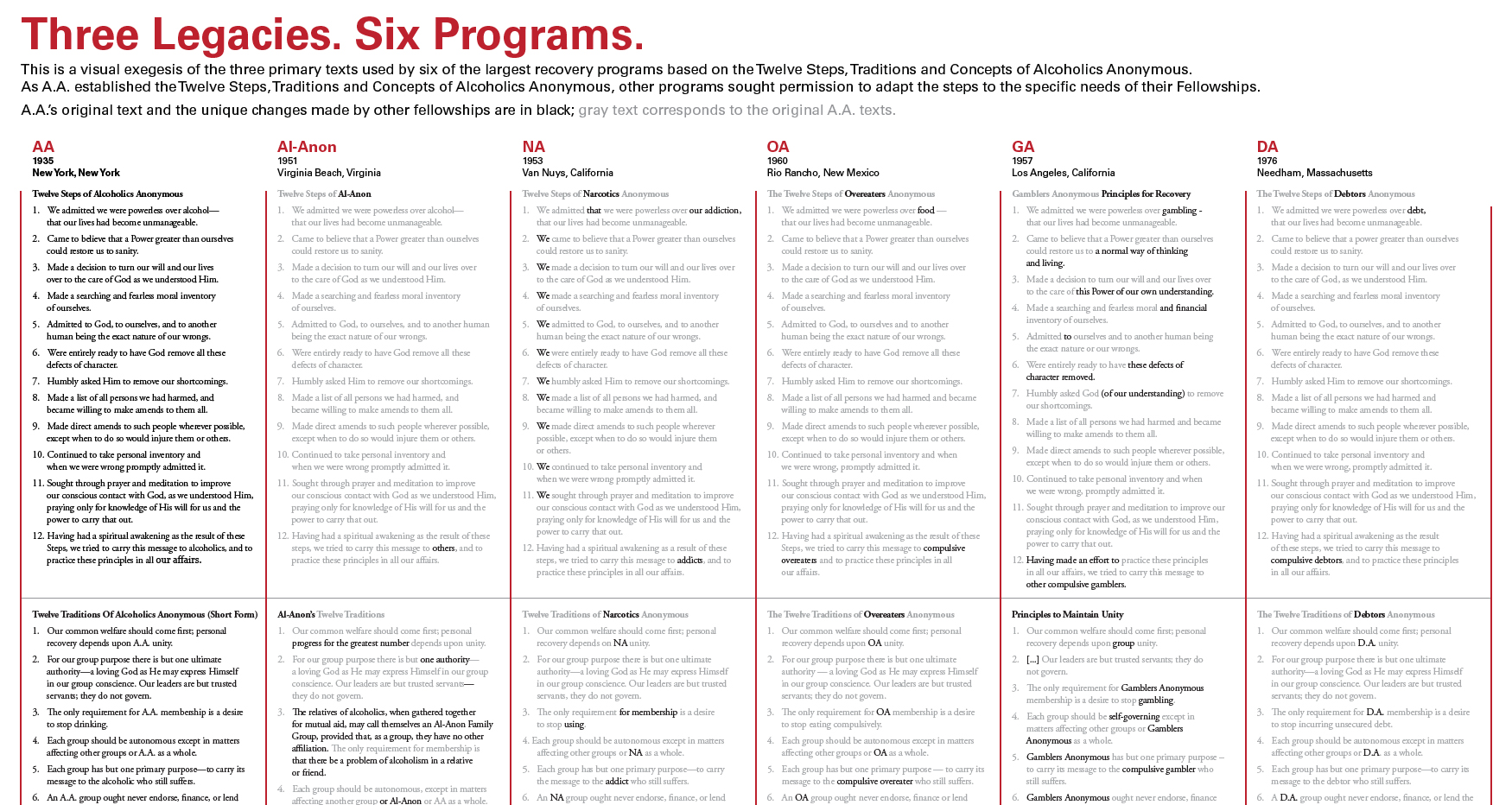The ways texts are adopted and adapted by different organizations fascinates me, especially texts that are essential to the members of the groups. Exegesis, the critical explanation, and interpretation of a text, is one way to examine how key texts differ by organization or use. I did a fair bit of biblical exegesis at Yale and it was fascinating to look at how canonical texts evolve over time, by denomination or translation. I used wanted to use some of the same methods to look a contemporary set of spiritual texts, the Three Legacies of Alcoholics Anonymous and how they have evolved when adopted by other Twelve Step programs.
Three Key Texts
The Three Legacies of Alcoholics Anonymous, The Twelve Steps, Twelve Traditions and Twelve Concepts are the core texts used by the fellowship and embody the three key principles, recovery, unity and service. The Twelve Steps are the principles used to “expel the obsession to drink and enable the suffered to become happily and usefully whole.” The Twelve Traditions are the principles that outline “the means by which A.A. maintains its unity and relates to the world about it.” The Twelve Concepts “are the guiding principles by which A.A. world service activities are conducted.” Together they are considered essential to for members of the program.
As A.A. meetings grew, family members of alcoholics began to recognize that these principles helped them deal with issues of their own, which led to the formation of family groups. These groups grew into the Al-Anon Family Groups, which began the first adoption and adaptation of these key A.A. texts. Not far behind was the adoption of the legacy texts by Narcotics Anonymous, Overeaters Anonymous, Gamblers Anonymous, Debtors Anonymous, and many others.
Visualizing the Differences
I visualized the language of three legacies used by six of the larger recovery programs to see how much they differed from each other. I started by gathering the approved versions from each fellowship. I compared each of the texts, visually calling out the changes made by each fellowship.
We can see how much each fellowship has made the texts their own or how closely they kept to the original versions. In some cases, the language varies only by the fellowship’s primary focus—food, debt, etc. On the other hand, especially with the Twelve Concepts, some fellowships kept only key principles and developed their own unique set of tenets. Gamblers Anonymous, for instance, uses a Guidance Code that incorporates some of the content of the Twelve Concepts but also includes a broader range of structural principles.
A.A. takes seriously its responsibility to protect the language of the Three Legacies while cooperating with other fellowships by granting permission to use the Steps and Traditions. This visualization shows how much or how little fellowships have decided to adapt the Three Legacies for their members and what each needed to carry its message.
Download a PDF





